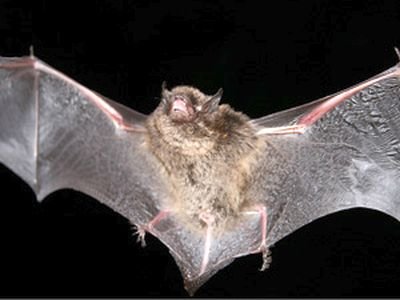Bat Warning Issued for People, Pets in Mid-Willamette Valley
As weather patterns cool when the fall and winter set in, bats will be seeking warmer shelter in barns, houses, garages and other indoor locations.

(SALEM, Ore. ) — With the warm weather returning to the mid-Willamette Valley over the weekend, Oregon public heath officials are warning of the likely contact between humans, pets, and bats.
The Benton County Health Department responded to a case where a bat was picked up by a dog. Fortunately, the dog was up-to-date on its vaccinations and no humans came into contact with the bat.
Bats are a primary carrier of rabies in Oregon and pets should be kept fully vaccinated and contact with bats -- or any wild animal acting abnormally -- should be avoided.
During warm weather people tend to sleep with windows open and may inadvertently allow bats to enter their homes. As weather patterns cool when the fall and winter set in, bats will be seeking warmer shelter in barns, houses, garages and other indoor locations.
Bats are naturally active during the evening hours between April and mid-October.
"This puts people at risk for contact with bats," Environmental Health Division Manager Bill Emminger said. "All open windows should have screens."
Children especially may want to handle bats that they encounter either inside or outside their homes. Parents need to caution their children not to touch or handle any bats.
Rabies is endemic in Oregon bats, and pets should be kept fully vaccinated and contact with bats -- or any wild animal acting abnormally -- should be avoided.
"It is important to vaccinate your cats against rabies, not just dogs," Senior Environmental Health Specialist Gordon Brown said. "Cats prey on bats and are at a higher risk for contracting rabies than dogs."
If you find a bat, dead or alive, contact you local public health department immediately. If you see a bat stay clam.
Oregon’s bats eat only insects, and an adult bat eats about 1,000 insects every hour.
There are 15 different bat species living in Oregon.
So far, there have been no reports of bat issues in Marion, Linn, and Polk Counties.
Useful information on Bats is available at:
www.dfw.state.or.us/species/mammals/bats.asp or www.cdc.gov/ncidod/diseases/submenus/sub_rabies.htm.



